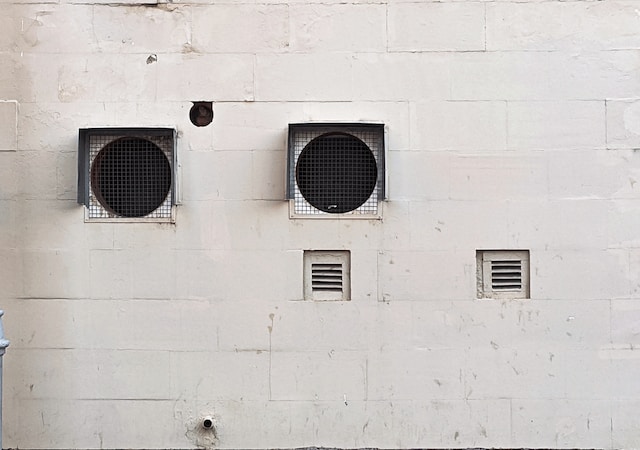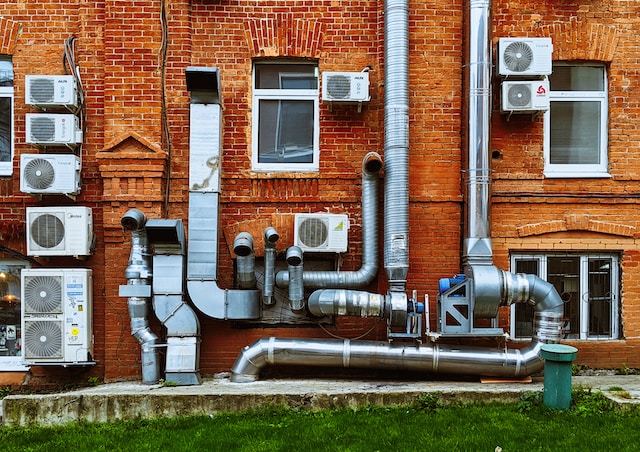Do you often find yourself asking the question, “Why does my bathroom smell like sewage?” It’s a problem that many households have to deal with, and it’s not only annoying — it may also be harmful to your health. A bathroom that smells like sewage can indicate a serious problem in your plumbing system. In this article, we will dive into the different causes of sewer smells in the bathroom and provide practical solutions for eliminating this unpleasant odor.
#1: Clogged or Slow Drains
Clogged or slow drains are a common cause of sewer smells in the bathroom. Hair, soap, and other debris can accumulate in the pipes and create a blockage that traps water and waste, leading to a foul smell. If you notice a sewer smell coming from your bathroom sink, shower, or tub, you may have a clogged drain. To clear the blockage, you can try using a plunger or a drain cleaner. A plunger works by creating pressure that pushes the blockage down the drain. A drain cleaner is a chemical solution that dissolves the debris blocking the pipes. Both methods can be effective, but if the clog is severe, you may need to call a plumber to resolve the issue.
#2: Dry P-Trap
The P-trap is a U-shaped pipe under the sink that traps water to prevent sewer gases from entering the home. If the water in the P-trap evaporates, the sewer gases will escape and create a foul smell. This can happen if the sink is not used frequently or if the bathroom is not ventilated properly. To refill the P-trap and eliminate the sewer smell, you can simply run water down the sink for a few seconds.
#3: Leaky Pipes
Leaky pipes can also cause sewer smells in the bathroom. If there is a leak in the pipes, sewer gases can escape and create a foul smell. Leaks can occur in the pipes that connect the bathroom fixtures to the main sewer line. If you suspect that you have a leak, you should call a plumber to inspect the pipes and repair any leaks.
#4: Ventilation Issues

Ventilation is critical in preventing sewer smells in the bathroom. If there is not enough ventilation in the bathroom, moisture can build up and create a breeding ground for bacteria, leading to a foul smell. To solve this problem, you can install a bathroom fan or open a window to allow fresh air to circulate. A bathroom fan works by removing moisture and preventing the growth of bacteria.
#5: Septic Tank Problems
If you have a septic tank, it can also cause sewer smells in the bathroom. If the septic tank is full, the sewage can back up into the bathroom and create a foul smell. Septic tanks need to be pumped regularly to prevent overflow and backups. If you suspect that your septic tank is full, you should have it pumped and inspected by a professional. A professional will be able to determine if your septic tank needs to be pumped or if there is a more serious problem with the system.
#6: Cracks in the Floor Drain
Floor drains are designed to prevent water damage in the basement or crawl space. However, if there is a crack in the drain, sewer gases can escape and create a foul smell. A crack in the floor drain can be caused by a variety of factors, including age, corrosion, or ground shifting. To fix this problem, you will need to have the floor drain inspected and repaired by a professional plumber. The plumber will assess the extent of the damage and determine the best course of action to repair the crack and eliminate the sewer smell.
#7: Broken Sewer Line
A broken sewer line can be a major cause of sewer smells in the bathroom. A broken sewer line can be caused by a variety of factors, including age, root infiltration, or ground shifting. If the sewer line is damaged, sewer gases can escape and create a foul smell. To fix this problem, you will need to have the sewer line inspected and repaired by a professional plumber. The plumber will assess the extent of the damage and determine the best course of action to repair the sewer line and eliminate the sewer smell.
#8: Improper Plumbing Ventilation

Plumbing vents are designed to allow air to circulate in the pipes and prevent sewer gases from entering the home. If the plumbing vents are blocked, the air pressure in the pipes can change, causing sewer gases to escape and create a foul smell. Improper plumbing ventilation can be caused by a variety of factors, including clogs in the vents, misdirected vents, or damaged vents. To solve this problem, you should have the plumbing vents inspected and cleared by a professional plumber. The plumber will assess the extent of the blockage and determine the best course of action to clear the vents and eliminate the sewer smell.
#9: Misdirected Plumbing Vents
Misdirection of plumbing vents can be caused by a variety of factors, including improper installation, ground shifting, or damage to the vents. To solve this problem, you should have the plumbing vents inspected and redirected by a professional plumber.
#9: Using Chemical Drain Cleaners
Chemical drain cleaners contain harsh chemicals that can damage pipes and create a foul smell. The chemicals in these cleaners can react with the pipes and create a buildup that traps waste and water, leading to a foul smell. Instead of using chemical drain cleaners, you can try using a plunger or a natural drain cleaner made from baking soda and vinegar. These natural solutions are gentler on pipes and can effectively remove debris and clogs without damaging pipes or creating a foul smell.
Conclusion
By addressing the root cause of the odor, you can maintain a fresh and hygienic environment in your home. Whether it’s using a plunger or contacting a professional plumber, the important thing is to take action to eliminate the sewer smell in your bathroom. Remember, a bathroom that smells like sewage is not only unpleasant, but it can also be a health concern. Don’t wait to address the problem, take the necessary steps to eliminate the odor and keep your bathroom smelling fresh and clean.

